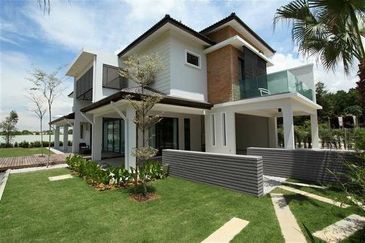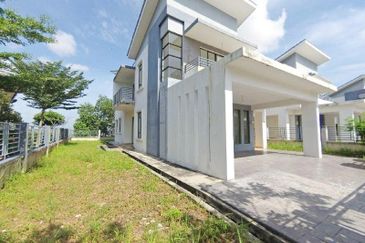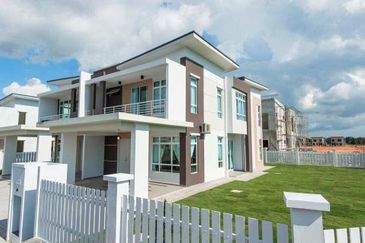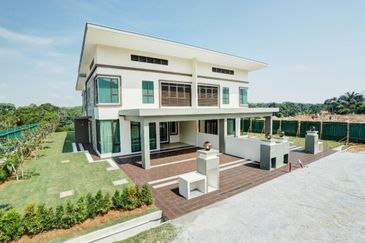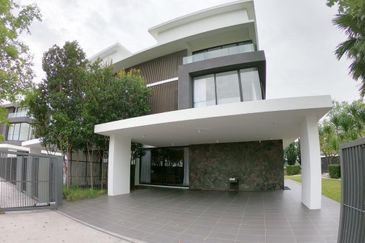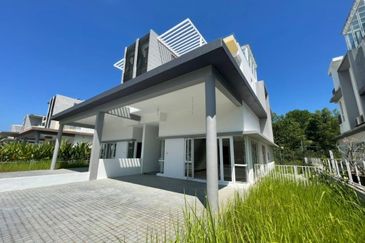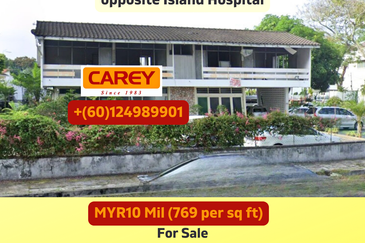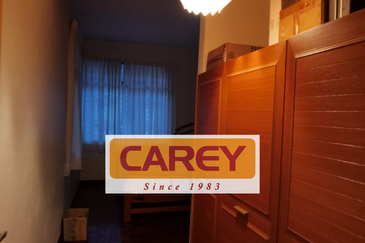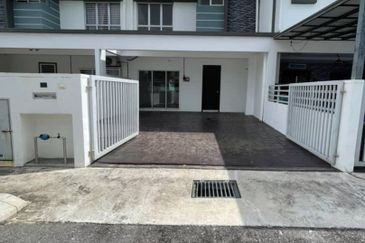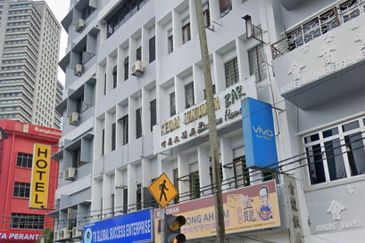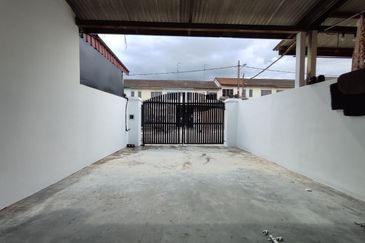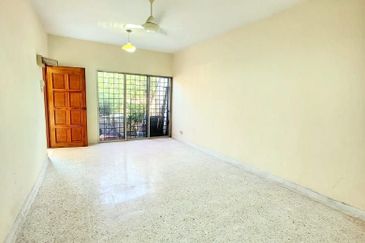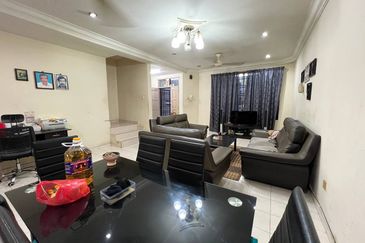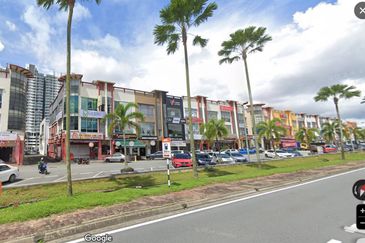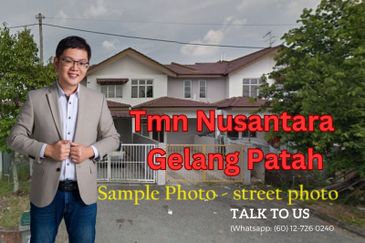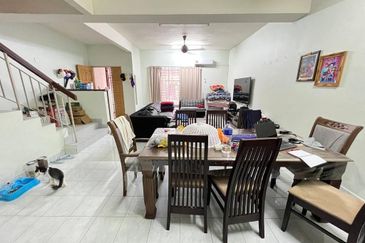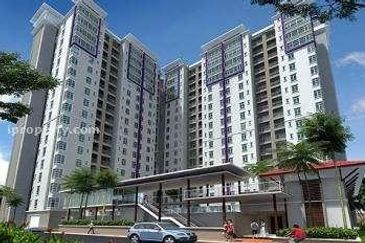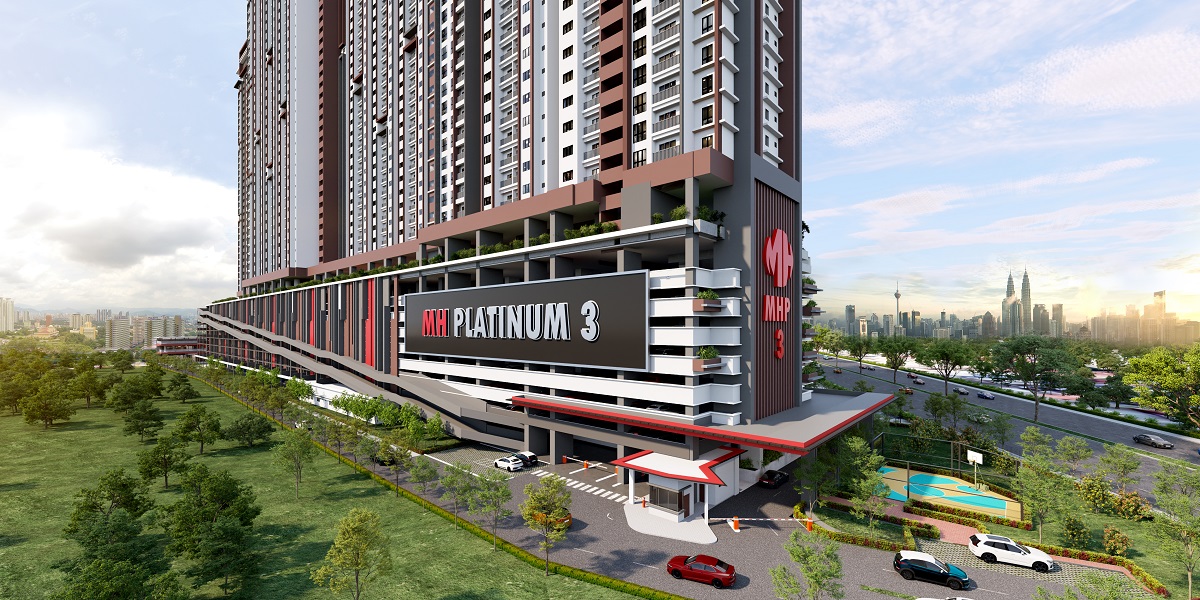TA Global Bhd, one of Malaysia’s top property developers, aims to create a boutique hotel in the historical town of Melaka as part of its corporate social responsibility (CSR) initiatives, which will see the hotel’s net earnings go to charity. The brains behind this idea is group director Datin Alicia Tiah.
“CSR has always been my passion; to give back to society,” says Tiah. “And I was thinking how to have a sustainable way to do CSR that will be profitable but the profit will go to charity.”
The money collected from the hotel operations will be channelled into the group’s TA Foundation, and subsequently be distributed to medical, education and other charitable activities. The foundation is a non-profit organisation established in 2009 and has tax-exemption status.
One charity that Tiah is looking to help is the National Stroke Association Malaysia (Nasam) rehabilitation centre in Melaka. “Since the hotel is in Melaka, I feel that a local organisation should be given assistance,” she says.
TA Global’s business interests include property development, property investment and hospitality. Its maiden luxury residential development, Damansara Idaman, was launched in 2004. It is currently developing the 48-acre Damansara Avenue in Bandar Sri Damansara.
The company also has projects in Richmond, Canada, where it is in a joint venture to develop a 22.78-acre tract, and in Little Bay, Sydney, where it has signed a sponsorship alliance to develop 33.6 acres of land.
TA Global’s portfolio of investment properties in Malaysia includes its headquarters at Menara TA One in Kuala Lumpur, shopoffices at USJ Taipan and Subang Business Centre, and the ground and mezzanine floors of Ativo Project in Damansara Avenue.
Among its hotel property investments are the Radisson BLU Hotel in Sydney; Westin in Melbourne; Swissotel Merchant Court in Singapore; Aava Whistler Hotel in Whistler, Canada; Swissotel in Kunshan, China; and Mövenpick Resort & Spa Karon Beach Phuket, Thailand.
Aava Malacca Hotel
The boutique hotel in Melaka is to be christened Aava Malacca Hotel and will be located within three adjoining pre-war shophouses in Jalan Kampung Hulu, which is not far from the popular Jonker Street. The Aava brand belongs to TA Global.
Tiah came to know about the Melaka property from a friend after spreading the word about her interest in buying property there. “I have always been fascinated with the Peranakan heritage in Malaysia even though I am not a Nyonya myself,” she says.
“I was born in Penang and I had neighbours who were Nyonya and my mother used to wear sarong and kebaya for all formal occasions. She also cooked Nyonya dishes for us at home.”
The Peranakan culture emerged in the 15th century when local women married traders from China who had made this country their home. The men are called Baba and the women, Nyonya.
Once Tiah saw the shophouses, the rear of which face the Melaka River, she immediately recognised their potential and made a bid for them. So, in mid-2011, Tiah bought the
shophouses lock, stock and barrel, along with a piece of vacant land opposite them, for RM4 million.
All the properties had been put up for sale by a trustee. The total built-up of the shophouses is 13,600 sq ft, with each unit being 18ft to 21ft wide and 18ft long. TA Global has not decided on what it will do with the 2,228 sq ft vacant land, although there were initial thoughts about using it as a car park.
Tiah says about RM3.7 million will be pumped into the project to restore and turn the shophouses into a boutique hotel. A typical pre-war shophouse in Melaka can vary in price, depending on its location and size. According to CH William Talhar & Wong’s Melaka branch manager Teh Hong Chua, typical pre-war shophouses in the city are 8ft to 20ft wide and 100ft to 150ft long, while built-ups range from 3,000 to 10,000 sq ft. The asking prices of the smaller units can start at RM500,000 while the larger units can go up to RM8 million.
Teh says that since 2008, when Melaka was declared a Unesco World Heritage Site, demand and values for pre-war shophouses within designated heritage zones have increased. “A pre-war shophouse that went for about RM300,000 previously saw the asking price go up to RM600,000 to RM700,000 after the declaration in 2008. That’s a 100% increase!”
Tiah is confident the Aava Malacca Hotel will do well. “I don’t think this project will lose money from year one, but how much I will make is the question,” she says, having considered the location of the hotel and the number of tourists visiting Melaka.
The group projects turnover for the first year of operations — it expects to open its doors in 2Q2013 — to be about RM1.1 million. The hotel will have 18 rooms — 11 standard rooms of about 300 sq ft each and seven suites of between 340 and 500 sq ft each. Tiah says the room rates for the standard rooms will be RM200 to RM300 per night, while the suites will go for RM300 to RM600 per night. There will also be a 35ft by 10ft swimming pool, which most boutique hotels in Melaka do not have, she adds.
The hotel will not have a fully operational restaurant as Melaka is renowned for its food and there are plenty of eateries nearby. “We will serve breakfast and later on, there will be high tea or tea service for people who don’t stay in the hotels but want to visit a nicely restored building,” says Tiah.
‘A project of conscience’
Securing the shophouses was the easy part. The challenge lies in turning them into a boutique hotel while conserving them at the same time as they fall within the heritage zone. What’s more, the shophouses have fallen into disrepair as they had not been occupied for a number of years.
To address this challenge, Tiah brought in Penangite and renowned conservation architect Laurence Loh, whose most famous restoration work is the Cheong Fatt Tze Mansion in Penang.
“It is an exciting way to do CSR work,” Loh says about the profit-for-charity concept. “I am always looking out for different types of partnerships. I guess having a passion for heritage helps.”
Loh calls the Aava Malacca Hotel a project of conscience. “When your conscience tells you to do something outside the realm of economic gain, you have to do it.”
His conscience was so strong that he took on the project before he even set eyes on the shophouses. He believes that this kind of work provides an opportunity to discover the “story” of a place that has long been vacant.
“It is always magical to walk into an old environment that has a sense of life and history,” Loh says. “When you step back into the past, there is something magical about that moment.”
It was discovered that the shophouses were owned and occupied by a rich food merchant who used the smallest shophouse as a store, another to sell his wares from and the third as his home. His descendants left them empty.
Loh says, “The idea of conservation is to keep the story alive.” Thus, a restored building will jog people’s memories and many stories will be shared about the place. In this way, a building is kept alive because of the many and varied shared experiences.
One interesting story, which hasn’t been verified, is that Sun Yat Sen, the father of Modern China, could have sat in the living room of one of the shophouses during his visit to Malaya.
Loh hopes this conservation project will help build skills capacity so that in time, more skilled workers will be able to carry out such projects without his supervision.
“I see my role purely as hand-holding, and once TA knows what to do, I will let go,” he says. “There is no magic involved in conservation. It is about good solid craftsmanship, going back to traditional methods and understanding the original material.
“It may be more time-consuming initially and more expensive because you are teaching people something they are not skilled at, but once you have these skill sets within your own organisation, you can work on and encourage more such projects in the future.”
Speaking of the future, TA’s Tiah says she wishes to develop more hotels like the Aava Malacca Hotel. One place she would love to do so is in Penang, her home state. But for now, she is concentrating on this hotel in Melaka.
This article appeared in City & Country, the property pullout of The Edge Malaysia, Issue 922, Aug 6-12, 2012
TOP PICKS BY EDGEPROP
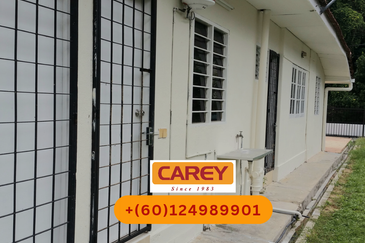
Jalan Bunga Kaca Piring
Tanjung bungah, Penang
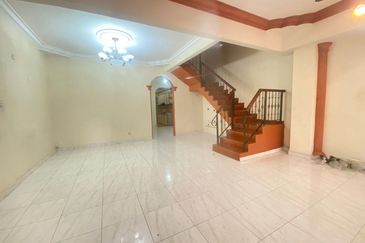
Taman Bukit Indah @ Iskandar Puteri
Johor Bahru, Johor
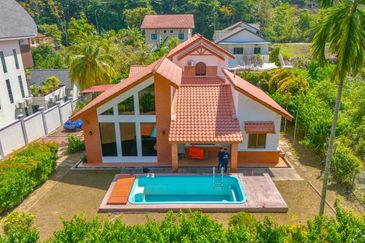
Sungai Buloh Country Resort
Sungai Buloh, Selangor

